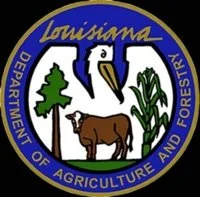Louisiana agriculture generates approximately $3 billion in sales each year, but in most years agricultural productivity is negatively affected by hurricane damage. Louisianans are familiar with the devastation and loss of life and property that can accompany a hurricane event as the state experiences, on average, one hurricane every three years. The total economic losses from a single hurricane can reach tens of billions of dollars, while agricultural losses can exceed one billion dollars. Louisiana is a major agricultural producer for the United States, but the structures, livestock, and crops are highly exposed to extreme wind and flooding during hurricane events.
Read MoreThe USDA is extending the comment period for its proposed new competition rule under the Packers & Stockyards Act by 15 days.
Tanner Beymer with the National Cattlemen’s Beef Association says the later deadline is welcomed news, but it’s not enough.
Read MoreClick below for the market report from the latest Kinder Livestock Auction.
Read MoreClick below for the market report from the latest Red River Livestock Auction.
Read MoreThank you for the continued support through the years of supporting Webster Parish 4-H and the Webster Parish Livestock Programs, especially the livestock sale. We at the Webster Parish Extension office could not have the wonderful programs without the continued support of our communities. Once again thank you.
Read MoreThis report contains the results from the 2024 July Milk Production Report.
Read MoreOn July 18, inspectors with the Louisiana Department of Agriculture and Forestry (LDAF) Livestock Brand Commission (LBC) arrested Ray A. Dunbar of Opelousas, Louisiana, for theft of livestock.
Read MoreClick below for the market report from the latest Kinder Livestock Auction.
Read MoreRecent weather extremes, which include record heat and cold as well as drought and flooding, have made it especially difficult to maintain the health and production of livestock in Louisiana. Predicting these weather extremes is nearly impossible at times, but advanced planning can help livestock producers minimize the impacts of these events.
Read MoreAs a first-generation sugar cane farmer and a fourth-generation cattle producer, Amanda Duhon has intimate knowledge of how the nation's meat, grains and produce make their way to grocery shelves and homes.
The food that her family farms on their 800 acres, spread between Lafayette and Maurice, is worked daily by Amanda and her husband, Kelsi Duhon. Often she's working with a baby strapped to her chest, or caring for the Duhon's three sons while her husband is out late during planting season.
Read MoreMembers of the DeSoto, Caddo, Bossier and Claiborne Parish Farm Bureaus will deliver fencing materials to ranchers who suffered damage during Monday’s tornadoes as Tropical Storm Beryl made its way across Texas into Arkansas.
The Shreveport office of the National Weather Service issued 67 tornado warnings on July 8. NWS officials later confirmed 19 tornadoes touched down in the area, including at least one in DeSoto Parish.
Read MoreOn July 10, the LSU School of Veterinary Medicine formally revealed its spectacular new Food Animal Service area in the large animal hospital attached to the LSU Vet Med building during a ceremony celebrating this state-of-the-art facility. This $4.125 million renovation began in October 2022. More than 9,000 square feet of space was renovated, and another 3,875 square feet were added.
Read MoreTo most, it looked like a bunch of run-down pig pens. But Nick Adams fell in love with the worn-out facilities at Franklin High School. Although he knew it was going to take a lot of work, all he could see was opportunity when he said yes to becoming the new FFA adviser in Franklin, La.
“When I came here, nothing was how it needed to be facility-wise,” Adams says. “We’ve made such a big transition over the years, in facilities alone, whether it was getting them cleaned up or getting new things built.”
Read MoreThis Presidential disaster declaration allows the United States Department of Agriculture (USDA) Farm Service Agency (FSA) to extend much-needed emergency credit to producers recovering from natural disasters through emergency loans. Emergency loans can be used to meet various recovery needs including the replacement of essential items such as equipment or livestock, reorganization of a farming operation, or to refinance certain debts. FSA will review the loans based on the extent of losses, security available, and repayment ability.
Read MoreWhile it’s fun to soak up the sun, it’s important to remember that just like humans, livestock also need protection from the scorching high temperatures.
Read More













